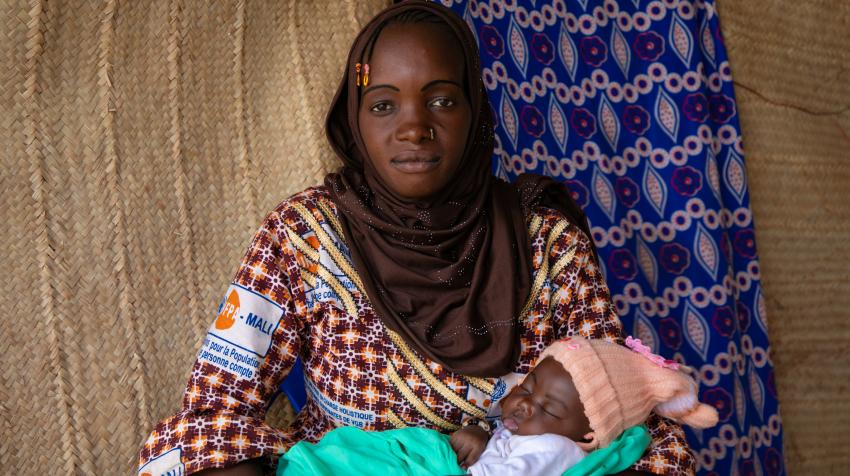There is no denying the existence of racism in Europe. We pride ourselves on having advanced democratic systems, a legal framework that protects and guarantees the rights of the individual and a welfare State that supplies basic services to all citizens, equally. All the same, no European society is free from the phenomenon of racism. Besides structural and persistent racism, which is often rooted in stereotypes, there are also new tendencies brought about by immigration.
While the greater diversity that accompanies immigration is enriching, it also gives rise to an irrational fear, which encourages some parts of society to perceive difference as a threat. These fears are exploited by certain political and social movements that spread their racist and identity-based agendas through new technology -- especially the Internet -- or at crowded sports events, such as football games. Racism leads to intolerance and xenophobia to violence, thereby creating a vicious circle that is very difficult to break.
The existence of a set of international norms does not seem to be enough to combat racism. The international community has equipped itself over the years with the necessary standards, including the Convention on the Elimination of Racial Discrimination of 1969 and the Durban Declaration and Programme of Action arising from the 2001 World Conference against Racism, Racial Discrimination, Xenophobia and Related Intolerance. In Europe, we have the European Commission against Racism and Intolerance (ECRI) within the framework of the Council of Europe, and the European Agency of Fundamental Rights, successor to the European Monitoring Centre on Racism and Xenophobia (EUMC) within the European Union, which is celebrating the European Year of Equal Opportunities for All in 2007.
Nonetheless, there is no doubt that it is at the national level that an effective fight against racist phenomena must be engaged, since in large part the cause feeds off the fear of losing a supposedly homogeneous national culture. Policies of integration, equality of treatment and non-discrimination are at the core of the struggle to eliminate, or at least forestall, the expression and diffusion of racist and xenophobic attitudes. In order to guarantee equality of treatment and equal opportunities for all, it is fundamental that a designated body should monitor expressions of discrimination, racism and xenophobia, and propose strategies for their prevention.
With this in mind, the Government of Spain has created the Spanish Observatory of Racism and Xenophobia (Observatorio Español del Racismo y la Xenofobia), fully aware that Spain is no exception to contemporary forms of racism. Provisions to create the Observatorio were made in the immigration law of 2000 (Ley de Extranjería) -- although it was not realized until 2006 -- and came about as a result of recommendations contained in the ECRI reports, the transposition of European Union Directive 43/2000 -- implementing the principle of equal treatment between persons, irrespective of racial or ethnic origin -- and warnings from civil society about the increase in incidents of discrimination, racism and xenophobia against foreigners and members of ethnic minorities in Spain.
The first and primary mission of the Observatorio is to carry out periodic surveys of the situation of racism and xenophobia in Spain, which involves the gathering of data, expert analysis and the publication of a detailed diagnosis of the situation. An important corollary of this objective is the preparation and publication of reports, the first of which is the Study of Spanish Public Opinion on Racism and Xenophobia, published in March 2006. The second objective is the establishment of communication networks with equivalent international bodies, thus becoming the main Spanish partner of ECRI and the European Agency for Fundamental Rights, maintaining permanent and direct relations with them, as well as with civil society. A third key task of the Observatorio is to report prior to the adoption of any legislative act with respect to the fight against racism and xenophobia. Possibly the best example of this is the recent law against violence, racism and xenophobia in sport, one of the areas in which racism is all too visible and regrettable in Spain, as well as throughout Europe. The Observatorio's ultimate goal is to promote the principle of equality of treatment for all. The elimination of racist and xenophobic attitudes will depend on how effective the adopted measures are. Actions already undertaken include training of civil servants and security forces on equality of treatment and non-discrimination, based on racial or ethnic origin, the promotion of appropriate treatment of racist phenomena in the media and the promotion of good practice in both the public and the private sectors.The establishment of the Spanish Observatory is still too recent to have yielded any tangible or significant results. However, we trust that it will become an essential tool in the fight against manifestations of racism, which are unfortunately on the increase in Spain, as shown by the Observatory's March 2006 study. The study also shows that there is widespread rejection of openly racist attitudes in Spain, and the presence of people of different origins is positively valued. Yet, alongside these encouraging findings, some worrying paradoxes are revealed. The first is the perception that the number of foreigners in the country is excessive. Furthermore, it is widely perceived that certain ethnic, religious or cultural minority groups do not mix with the rest of society, proving that there is a sizeable minority of Spaniards who are not open to cultural diversity. There is also a widespread perception that more immigration means more delinquency.
One of the hallmarks of the Spanish Government has been to remove obstacles and achieve real equality for all citizens. To this end, a number of laws have been passed, including: the Gender Equality Law; changes to the Marriage Law, in order to make it available to all; the Law of Dependants, which aims to provide greater equality of opportunity to those who are unable to look after themselves, as well as to their families; the introduction of education on citizenship and human rights in schools; and the Law on Gender Identity, which eliminates all discrimination based on sexual orientation. In the area of tolerance and non-discrimination, besides the establishment of the Observatorio, there has been a modification of the Criminal Code to include racism as an aggravated circumstance in any crime, leading to a harsher sentence. Finally, two new bodies have been established: the Foundation for Pluralism and Tolerance (Fundación Pluralismo y Convivencia) to promote inter-faith dialogue and the State Council of the Roma People (Consejo Estatal del Pueblo Gitano), which recognizes the continuing difficulties of integration that people, established for centuries in Spain, are still facing.
The same priorities are reflected in Spain's human rights foreign policy, which has sought to make the fight against discrimination one of its priorities. In addition to the launch of the Alliance of Civilizations at the United Nations, Spain has chosen "Diversity and Participation in Pluralistic Societies" as the main theme for the human dimension activities of its chairmanship of the Organization for Security and Cooperation in Europe (OSCE) in 2007.
A democratic system is not compatible with enduring racism and the modern forms of intolerance and discrimination that we are currently experiencing. However, these expressions of the most heinous and irrational hatred will not disappear unless we truly create a framework that targets the individual's perceptions through effective use of education and the media, and strengthens the legislation that promotes the elimination of all forms of discrimination.
The UN Chronicle is not an official record. It is privileged to host senior United Nations officials as well as distinguished contributors from outside the United Nations system whose views are not necessarily those of the United Nations. Similarly, the boundaries and names shown, and the designations used, in maps or articles do not necessarily imply endorsement or acceptance by the United Nations.



